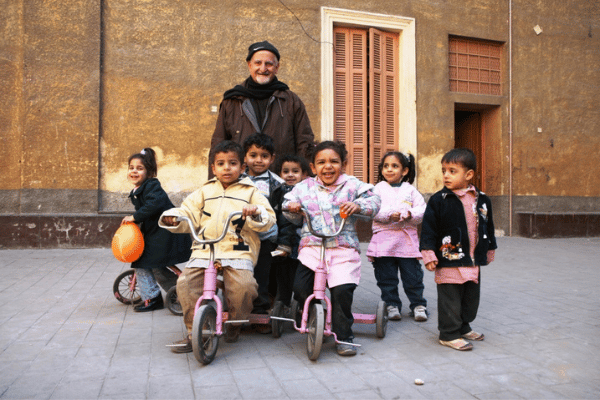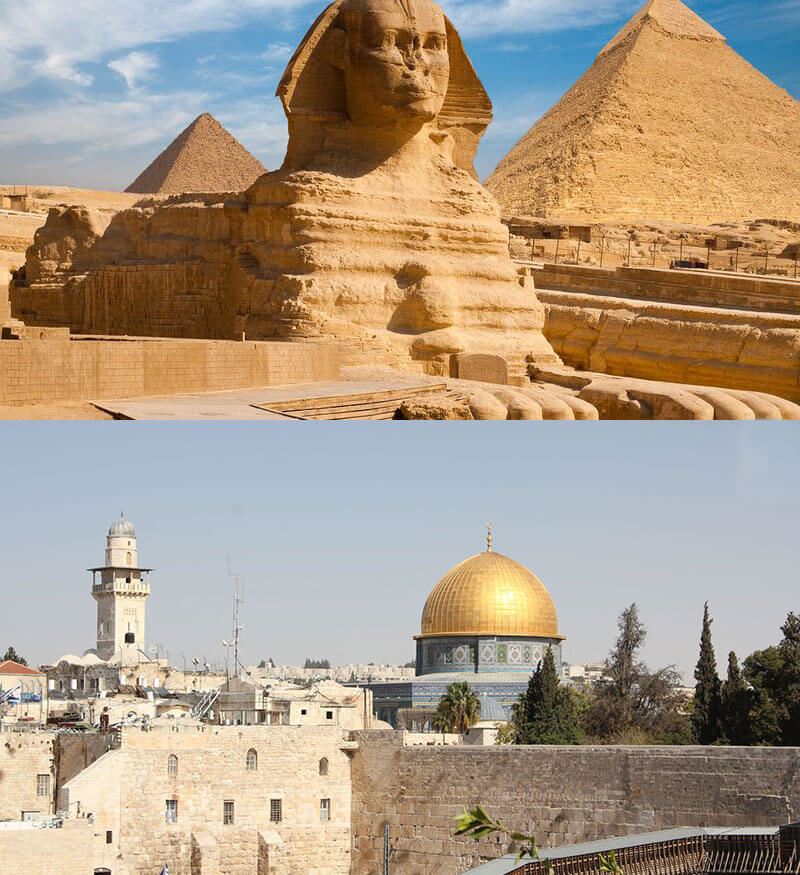Have you ever wondered why the land of Egypt is considered the Holy Land?
We find a first answer in the Gospel of Matthew to the following passage: “They (the Magi) had just departed, when an angel of the Lord appeared in a dream to Joseph and said to him: “Arise, take the child and his mother with you, flee to Egypt and stay there until I warn you: Herod in fact wants to look for the child to kill him”.
We know that Joseph left immediately with the Virgin Mary and the child, who, according to historical sources, was one or two years old at the time, and they set out for Egypt. As is known, King Herod, after the Magi did not return to him, ordered the massacre of all the children who inhabited Bethlehem and nearby villages. The episode is known as the “Massacre of the Innocents”.
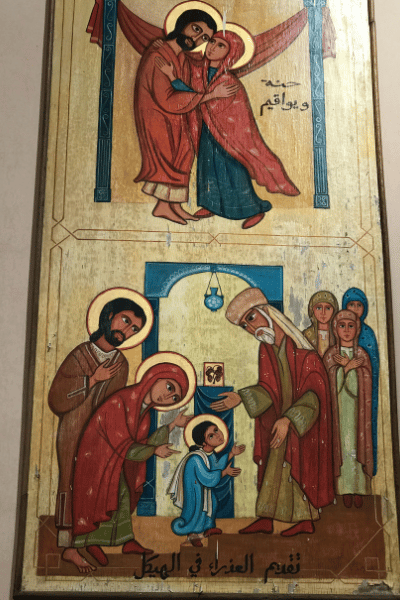
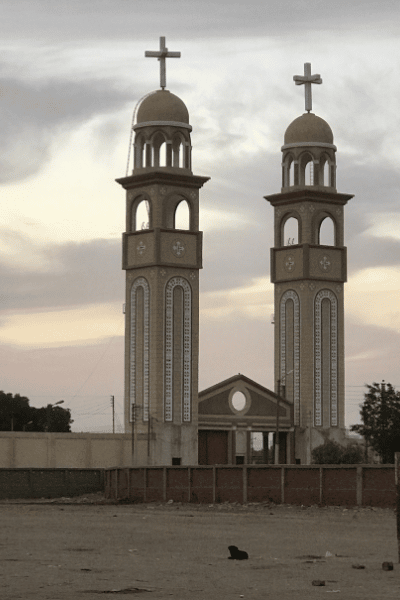
In the footsteps of the Holy Family
Joseph decided to remain in the land of Egypt for about three years, until the death of Herod.
On their return, all three went to live in a city in Galilee, in Nazareth, “so that what had been said through the prophets might be fulfilled: ‘He shall be called a Nazarene’“.
The child Jesus therefore spends the very first years of his life in a foreign land for having saved his life. The Gospels do not tell us how the Holy Family lived the three years in Egypt. What is certain is that Coptic Christians have for centuries been extremely attached to this flight; for them it represents the physical presence of Christ “at home”.
Coptic Christians are considered the largest Christian minority in the Middle East and account for 10% of the population.
It is rather uncertain the route and the stopping points that the Holy Family touched during the flight to Egypt. According to ancient traditions, the places where they stopped are at least 25 and in each of them there is now a church or a monastery.
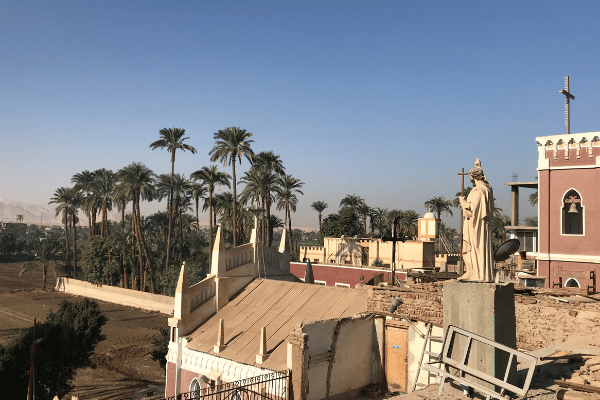
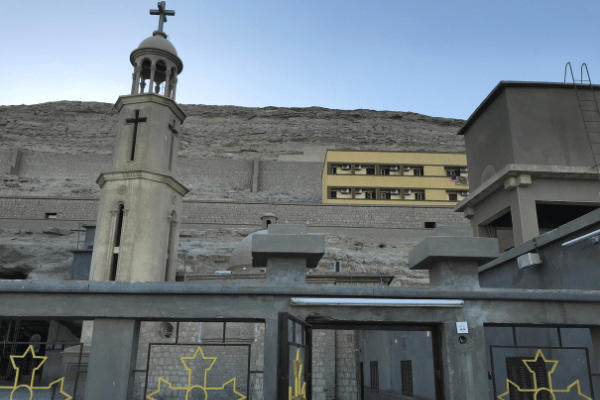
Between testimonies and faith
Since the Gospels tell us nothing about the places where the Holy Family lived in Egypt, much of the Coptic tradition is based on the testimony of Theophilus, patriarch of the Coptic Church around 500. To him were revealed in a dream the places touched by Jesus, Joseph and Mary.
Together with the testimony of Patriarch Theophilus, they must be added a living local tradition and a great heritage of faith which, for example, considers Sakha the place where lies a stone bearing the imprint of the foot of the Child Jesus and Al-Matariya like the point where a sycamore rises that offered shelter to the Virgin Mary. It is believed that the name of Al-Matareya derives from the Latin word “mater“, which means “mother”. Next to this twisted trunk sycamore was born a miraculous water source that continues to attract faithful and pilgrims from all over the world. Unfortunately, the Tree of the Virgin Mary in Cairo was damaged by unknown persons in 2013.
Three years ago, the Archbishop of the highly venerated site of Al-Muharraq, Father Philxenous Al Muharraque, said he was very pleased that the Egyptian authorities had asked for the candidacy of the Way of the Holy Family as a site protected by UNESCO.
Among the many sites venerated, one of the most famous is Mount Qusqam, where, according to tradition, the carpenter Joseph, the Virgin Mary and the Child Jesus dwelt for six months. It is here that the monastery most revered by Coptic Christians stands: Dayr Al-Muharraq, mentioned above. We are located in the rule of Assiut in Upper Egypt and this complex is part of the Coptic Orthodox diocese of Al-Qusia. Inside this huge complex is the church of the Blessed Virgin Mary.
The Coptic Christians of Ethiopia are so devoted to this site that they consider it a “Second Jerusalem”.
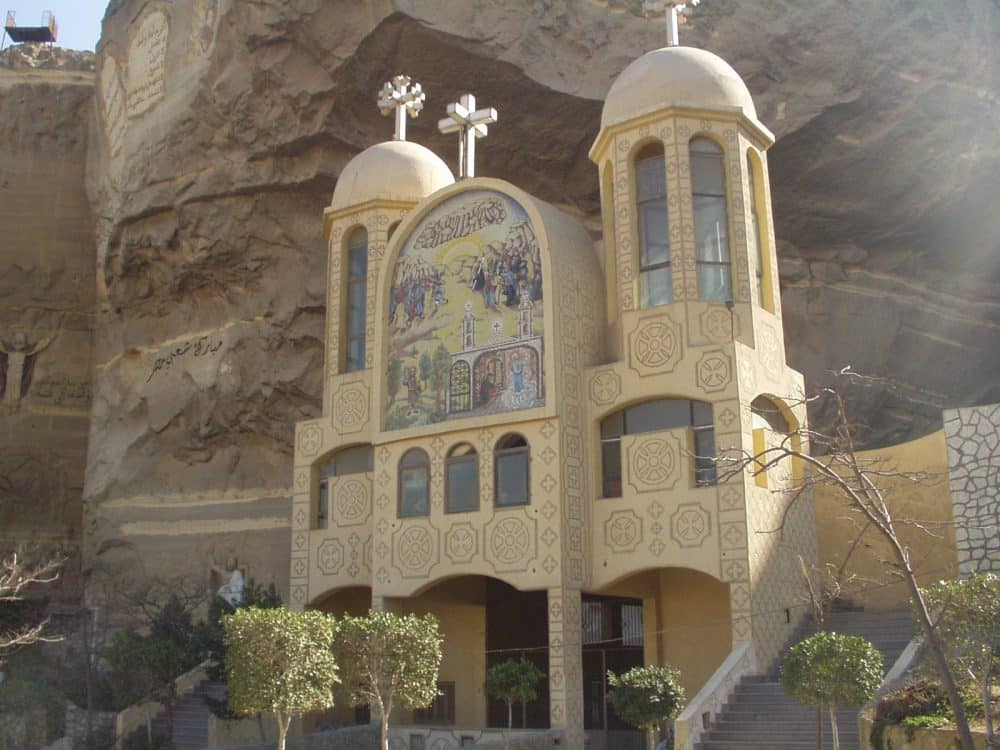
The presence of the Franciscans in the Holy Land has its origin in Egypt
The Franciscans of the Custody of the Holy Land are very attached to the Land of Egypt. As a matter of fact, the order of Friars Minor was born right on the banks of the Nile, when the founder of the Franciscans, St. Francis of Assisi, went on pilgrimage to the Middle East at the beginning of the thirteenth century. Despite the great risks, moved by love for God, he wanted to meet Sultan Malek al-Kamil in Damietta, Egypt. A miraculous dialogue was born between the two, in the middle of the Crusades.
It was the beginning of the presence of the Franciscans in the Holy Land, a glorious history that continues today.
